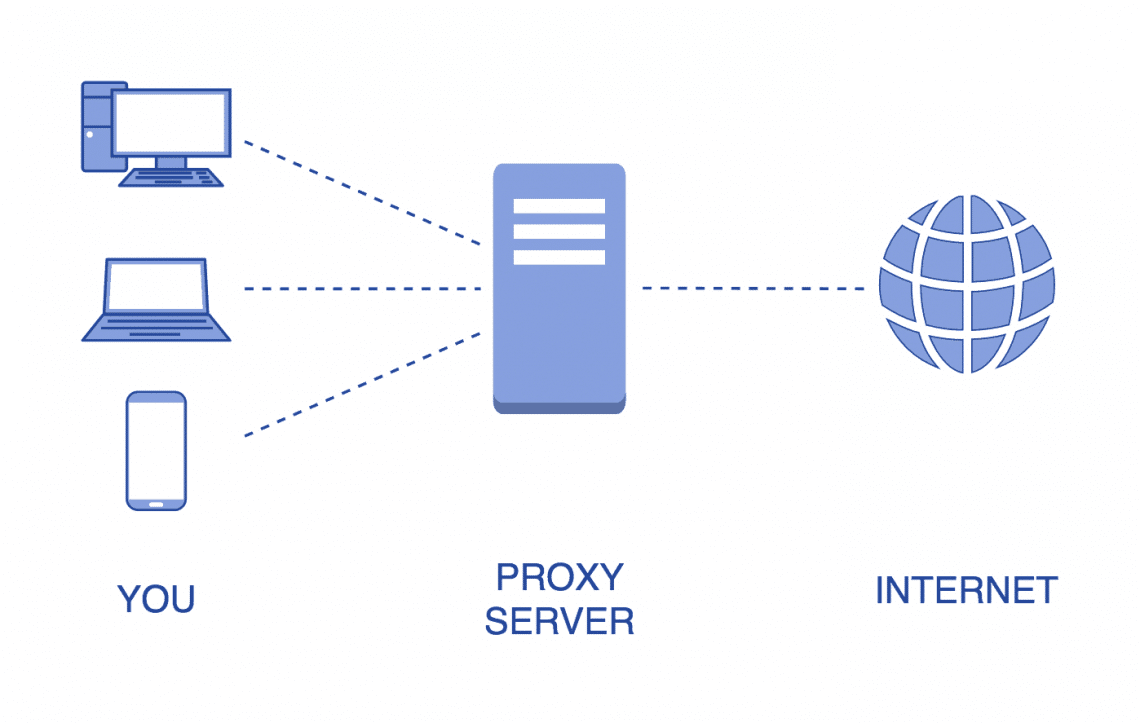Disproving Mythologies: What Proxy Servers Are Able To and Cannot Do

In the modern digital world, proxies have become a topic of intrigue and confusion for numerous online users. As our online lives becoming increasingly intertwined with privacy and security concerns, understanding what proxy servers can truly achieve is crucial. There are many misconceptions, and misinformation can lead to false expectations about how these systems operate. This article aims to illuminate the truth of proxy servers, helping you grasp their functionalities, benefits, and restrictions.
Proxy servers act as bridges between individuals and the internet, offering various advantages for both personal and commercial purposes. Yet, not everything said about them is correct. From increasing web privacy to allowing access to geo-restricted content, proxy servers have many applications. Yet, their efficacy can differ significantly depending on the type of proxy and how it is set up. Join us as we dispel popular myths surrounding proxy servers and explain what they can and cannot deliver.
Understanding The Role of Proxy Servers
Proxy servers act as intermediaries between a user's device and the internet. As soon as a user establishes a connection to the internet via a proxy server, their requests are directed via the proxy before reaching the specific website. This procedure conceals the user's IP address, providing a degree of privacy and security. Essentially, a proxy server gathers data from the internet for the user, making it appear as though the request is originating from the proxy rather than directly from the user.
There are multiple categories of proxy servers, every one serving varied purposes. For instance, HTTP proxies are commonly used for web traffic, while SOCKS proxies can handle multiple types of traffic, including email and video streaming. Transparent proxies do not alter requests or responses, often used in organizational networks for data filtering. Knowing these various types helps users pick the appropriate proxy server to fulfill their specific needs, be it for privacy, security, or content access.

The functions of proxy servers go past anonymity. They can enhance online security by screening harmful content, preventing access to malicious sites, and safeguarding sensitive data. Additionally, proxy servers enhance internet performance by caching frequently accessed content, reducing load times, and reducing bandwidth usage. This diverse role demonstrates how proxy servers are crucial tools for individuals and businesses aiming to enhance their online activities and protect their information.
Benefits and Drawbacks of Employing Proxy Servers
Proxy servers offer a variety of advantages for individuals seeking enhanced online confidentiality and safety. By directing internet traffic through a proxy, individuals can hide their IP addresses, making it more difficult for sites and online platforms to track their activities. This increased anonymity can be particularly advantageous for those who emphasize their privacy while surfing or engaging in online activities. Also, click can help users overcome geo-restrictions, allowing entry to content that may be restricted in their area, such as streaming services or certain websites.
On the other hand, there are also dangers linked to using proxy services, especially when selecting complimentary or untrusted services. Free proxies often have inadequate security measures and can leave users to data breaches or harmful attacks. Individuals may find their private information at stake when using insecure proxies, making it critical to choose a trustworthy service. Additionally, dependence on servers can lead to reduced connection speeds, especially when accessing bandwidth-intensive content, which may diminish from the overall online experience.
Additionally, it's important to understand that not all proxies provide the same level of protection against hackers and online dangers. While a proxy can hide IP identifiers and provide disguise, it doesn’t automatically secure information, which is a key feature for secure online communication. Therefore, individuals must evaluate the advantages and cons carefully and reflect on their specific needs and circumstances when determining whether to use a proxy server.
Proxy servers across Various Fields
Proxy servers have a wide range of applications across different areas, providing essential services that improve the online experience and security. In the realm of cybersecurity, businesses use proxy servers to create an extra layer of defense against cyber threats. By directing data through a proxy server, organizations can observe and manage information flow, effectively handling threats and safeguarding confidential data. Moreover, proxy servers can restrict staff entry to certain sites, ensuring a focused work environment and improving overall efficiency.
Another significant application of proxies is in accessing content, particularly for bypassing geo-restrictions. Users utilize these proxy servers to access geographically restricted media on platforms such as Netflix and Hulu, allowing for a more diverse entertainment experience without being limited by location. Many choose custom proxies designed for streaming content to maintain high bandwidth and speed, ensuring smooth watching without interruptions. This has made proxies a preferred choice for individuals looking to explore an extensive range of online content that would otherwise be unavailable.
Within web scraping and market analysis, proxy servers are invaluable assets for businesses and individuals alike. They allow individuals to gather data from various websites without raising red flags that would result in bans or limits. By employing different proxy servers, data gatherers can spread their requests, simulating genuine user actions and thus avoiding detection. This capability gives companies a competitive edge by enabling them to obtain information and data analysis from rivals rapidly and efficiently, reinforcing the role of proxies as a critical asset in today's data-centric approaches.
